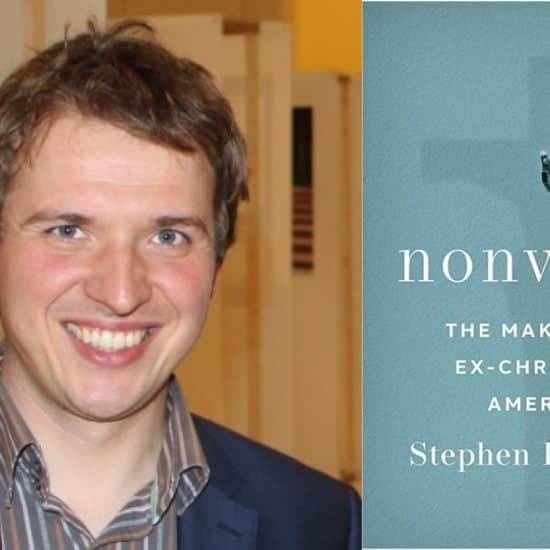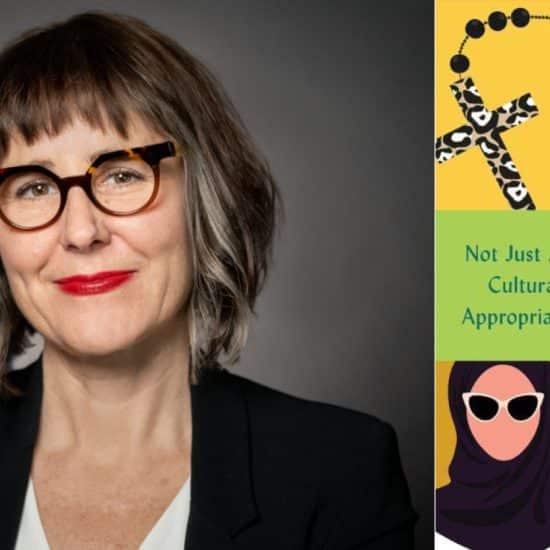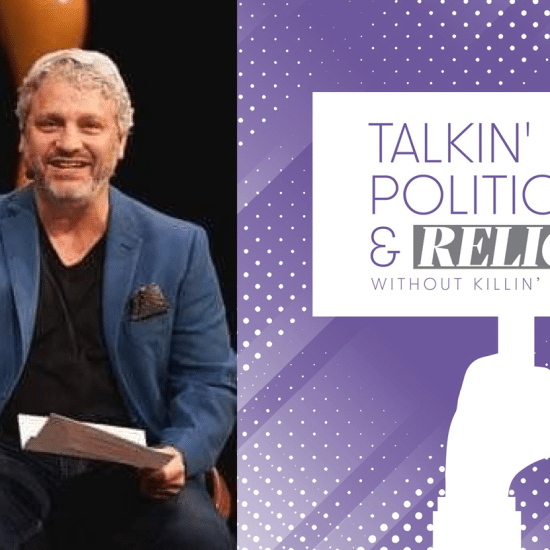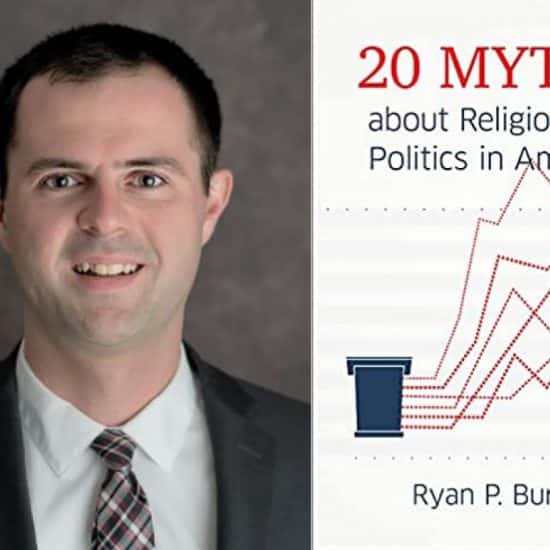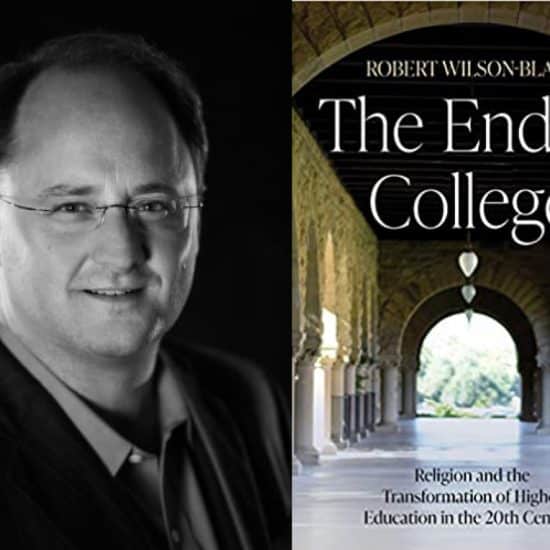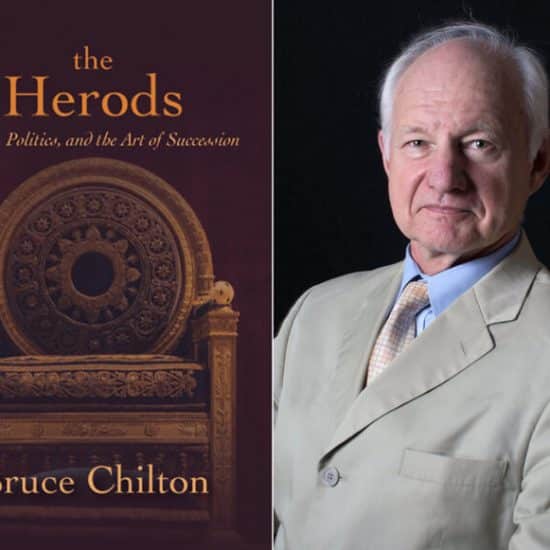WASHINGTON (RNS)—The calendar may have said 2010, but for Pope Benedict XVI and much of his global flock, it looked and felt a lot like 2002. For the second time in a decade, charges of child molestation at the hands of Catholic priests dominated headlines—this time reaching the highest levels of the Vatican, as critics questioned whether Benedict himself mishandled abuse cases.
The Roman Catholic Church wasn’t the only institution battling a sense of deja vu, as some of the most controversial religion stories from the past 20 years returned to the headlines.
A 1994-style fight over health care reform not only pitted Republicans against Democrats, but also Catholic bishops against Catholic nuns. Lingering questions about President Obama’s Christian faith morphed into a belief among one in five Americans that he’s actually a Muslim. Nearly 10 years after 9/11, Islamophobia returned with a vengeance as a Florida pastor threatened to torch a pile of Qurans, and Tennessee officials debated whether Islam actually is a religion.
This time, the resurrected stories were more pointed, the debates more polarizing. Old stories found new life online, and voices that once would have been dismissed as extreme were amplified by the Internet, Facebook and Twitter.
“New media has had the effect of keeping certain news stories alive, bringing them back from the dead and propelling them into the news,” said Diane Winston, a scholar of religion and media at the University of Southern California.
The 2010 abuse scandal, unlike the 2002 crisis in the U.S., largely was confined to Europe, starting in Ireland and later erupting in the pope’s native Germany. Four bishops resigned, and Benedict ended the year by telling cardinals that worldwide guidelines for handling abuse cases will be forthcoming.
It was really almost like the crater of a volcano, out of which suddenly a tremendous cloud of filth came, darkening and soiling everything,” the pope told a German journalist in a book-length interview.
Here in the United States, the ghosts of 9/11 loomed large as a fight over a planned Islamic community center a few blocks from Ground Zero became a litmus test for tolerance toward American Muslims. Evangelist Franklin Graham was uninvited from a National Day of Prayer event at the Pentagon for calling Islam an “evil” and “wicked” religion, comments he made back in 2001.
Even as Michigan’s Rima Fakih was crowned the first Muslim Miss USA, 53 percent of Americans admitted harboring unfavorable views of Islam. Oklahoma voters passed a pre-emptive ban on judges using Islamic law in state courts.
Omid Safi, a professor of Islamic studies at the University of North Carolina at Chapel Hill, said he is most concerned by the reaction against the organizers of Park51, the proposed Islamic center near Ground Zero.
“These are the most interfaith-y group of Muslims imaginable,” he said. “They are as successful an American story as it gets; it’s the perfect immigrant narrative. These are people who get sent by the State Department overseas to say Muslims can live freely in this country, and then they are caricatured as jihadist radicals.”
Distrust of Islam was not limited to American shores. A year after Switzerland banned minarets at mosques, Belgium and France banned Muslim women from wearing full-face veils in public.
Like the 1994 Republican resurgence, the Democrats’ midterm “shellacking” was fueled, in large part, by anger over health care reform. The plan split American Catholics, with bishops opposing it and Catholic hospitals and nuns supporting it. The hierarchy later dismissed dissenters’ support for the plan as mere “opinion,” however “well-considered.”
In the Episcopal Church, it felt a lot like 2003 again as Mary Glasspool was elected the church’s second openly gay bishop. New Hampshire Bishop V. Gene Robinson, whose 2003 election sparked a global schism, announced that he will retire in 2013.
Glasspool’s election prompted Anglican leaders in London to sideline their rebellious American branch on some international panels. The Presbyterian Church (USA) voted— for the fourth time in a dozen years—to allow openly gay clergy, and new rules that allow gay clergy prompted dissident Lutherans to form the North American Lutheran Church.
In a flashback to 1976, when Episcopalians opened the priesthood to women, the last hold-out diocese, in Quincy, Ill., finally ordained its first female priest.
A rash of teen suicides and gay bullying spurred religious leaders, rock stars and even Obama to join the “It Gets Better” project, while an October poll found that two-thirds of Americans see a link between religious teachings against homosexuality and higher rates of suicide among gay youths.
Religious teachings against homosexuality are not enough to justify a ban on gay marriage, a federal judge ruled in August in striking down California’s Proposition 8. And religious beliefs are not enough to justify the unconstitutional law that created the National Day of Prayer, another federal judge ruled in April.
Pioneering televangelist Robert Schuller, after a bitter and public family feud, handed his Southern California pulpit over to daughter Sheila Schuller Coleman, who filed for bankruptcy in October, citing church debts of $43 million.
In Oregon, prosecutors traveled down familiar terrain as two parents from a controversial faith-healing church were sentenced in the death of their teenage son; their daughter and son-in-law had been acquitted on similar charges last year. Another set of parents from the same church face similar manslaughter charges.
Religious and humanitarian groups rallied to deliver relief to earthquake-ravaged Haiti, where an estimated 220,000 died, more than 300,000 were injured and more than 1 million left homeless. Ten U.S. mission workers were detained, and later released, on charges of trying to smuggle Haitian orphans out of the country.
Along the Gulf Coast, social service agencies were stretched thin trying to deliver relief to families and businesses struggling to cope with the massive BP oil spill.
2010 saw several prominent culture warriors take a bow from the national stage:
• After stepping down last year as chairman of Focus on the Family, James Dobson turned off the microphone at his daily radio program only to start his own show.
• Ill health forced Donald Wildmon to retire as head of the American Family Association.
• Ergun Caner was forced to step down as dean of Liberty Baptist Theological Seminary after exaggerating his dramatic conversion from militant Islam.
At the same time, several controversial newsmakers from years past re-emerged for a second act in 2010:
• Colorado Springs pastor Ted Haggard started a new church four years after a stunning fall from grace in a scandal involving a male escort and drugs.
• Obama’s fiery former pastor, Jeremiah Wright, alleged that the president “threw me under the bus” during the 2008 campaign.
• Roy Moore, who lost his job as chief justice on the Alabama Supreme Court in 2003 for refusing to remove a 5,300-pound Ten Commandments monument, lost his second bid for governor.
• Nation of Islam leader Louis Farrakhan returned to the spotlight to demand an apology from Jews for “the most vehement anti-black behavior in the annals of our history.”
• Whitewater prosecutor Kenneth Starr was named president of Baylor University, the world’s largest Baptist school.
2010 also saw the passing of several notable figures: Jews for Jesus founder Moishe Rosen died at age 78; pioneering feminist theologian Mary Daly died at age 81; Davey and Goliath creator Art Clokey died at age 88. Gospel artists Doug Oldham died at age 79, Albertina Walker at age 81 and Walter Hawkins at age 61.

